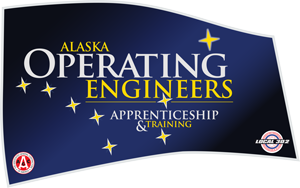Alaska Operating Engineers/Employers Training Trust (AOEETT)
Class Registration Policies/Signatures
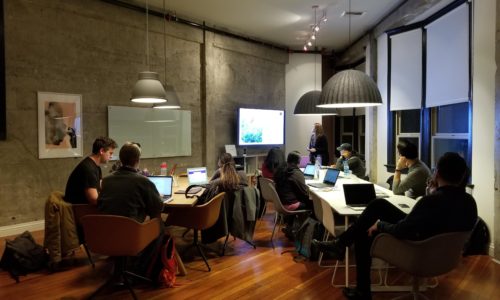
Course Cancellations/No Call/No Shows:
A $50 fee will be assessed to all members that fail to attend, without notice of cancellation, any course in which they are registered. Cancellation may be submitted by phone, fax, email, or text.
A $50 fee will be assessed to all members that fail to attend, without notice of cancellation, any course in which they are registered. Cancellation may be submitted by phone, fax, email, or text.
To be considered for future training, the cancellation fee must be received before registration. Check or money order will be accepted. Debit/credit cards will be taken on our website.
AOEETT reserves the right to remove from current and future training, any member with unexcused tardiness or absences, unsafe practices, attitude problems, and failure to follow the rules/regulations.

CERTIFICATION REIMBURSEMENT POLICY
Anyone requesting travel reimbursement must be a Local 302 member in good standing as defined in the Union Bylaws and Constitution:
- Provide proof via dues card and registration slip for Local 302 in Alaska.
- Must be currently working out of the Local 302 in Alaska or registered for work on at least one Local 302 Out-of-Work List in Alaska.
- Worked and paid into Alaska Training at least 200 hours in the last 2 calendar years.
The Alaska Operating Engineer/Employers Training Trust (AOEETT) reimburses members for registration/test fees for the certifications listed below when successful completion of certification and all required guidelines (detailed guidelines available upon request) for reimbursement submission are met:
- OECP Certification – Initial certification and added specialties. You will be reimbursed for the actual amount, not to exceed $275.00, if you pass all tests required for the certification.
- We do not pay for late fees, replacement cards, updated certification cards, re-certifications or fees incurred outside required testing fees, including but not limited to: date change fees, declined credit card or returned check fees.
- NCCCO – Only the initial Service Truck Certification will be reimbursed. You will be reimbursed for the actual amount, not to exceed $275.00, if you pass all tests required for the certification.
- We do not pay for late fees, replacement cards, updated certification cards, re-certifications or fees incurred outside required testing fees, including but not limited to: date change fees, declined credit card or returned check fees.
- Commercial Drivers License (CDL) – Original issue of a Class A OR B license. You will be reimbursed for the actual amount, not to exceed $100.00.
- We do not pay for CDL permits, class C licenses, license renewals, lost/replacement cards or addition of endorsements after original license has been issued.
- We do not pay for upgrade of class or removal of restrictions or reinstatement.
- We do not pay for rental trucks or testing/training taken outside the AOEETT.
- We do not pay for DOT Medical Examiners Cards.
- Hazardous Materials endorsement background check for CDL license. You will be reimbursed for the actual amount, not to exceed $86.50.
- We do not pay for background check renewal.
- We do not pay for lost/misplaced/reissued background checks.
- TWIC Card – We will reimburse the actual amount, not to exceed $129.75 for the original issuance of card. If you already have the background check done for the CDL Hazardous Endorsement you will be reimbursed the actual amount, not to exceed $105.25.
- We do not pay for TWIC card renewal.
- We do not pay for lost/misplaced/reissued TWIC cards.
- We do not pay for background checks when Hazmat Materials endorsement background check has previously been completed.
- Asbestos Abatement Certification – Initial certification only. Not to exceed $695.00.
- VEE/Smoke School – Initial certification only. Not to exceed $275.00.
- Other certification requirements may arise and will be dealt with on a case by case basis.
Once you have received the certification card or document obtained from training attended you will need to complete a certification reimbursement request form* and STEP Grant** form (if not previously done) and submit it within the timeframes shown that apply to the training/certification you are requesting reimbursement for. When completing the certification reimbursement request form you must provide all information requested. When turning the form into the Training Trust you must provide the documents stated above that apply to the training/certification you are requesting reimbursement for***.
Timeframes for reimbursement request submission:
- NCCCO Service Truck Certification – within 6 months of NCCCO Service Truck Certification card being issued.
- OECP Certification – within 6 months of OECP Certification card being issued.
- CDL License – within 2 weeks of license being issued.
- Hazardous Materials Endorsement Background Check – within 30 days of letter showing eligibility for endorsement.
- TWIC Card – within 30 days of TWIC card being issued.
- All other certifications – within 2 weeks of certification being issued, unless otherwise noted by the Training Trust at the time of training request.
*In the event that reimbursement requests are not received in the time stated above for the stated
certification/training, reimbursement will be denied.
**Refusal/failure to complete a STEP Grant form and required documents will result in immediate
denial of reimbursement.
***Failure to submit the required documents will result in immediate denial of reimbursement.
The Training Trust will not reimburse for certification fees, transportation, lodging or meals in the event that you fail to obtain the certification/qualification on your first attempt or any attempts thereafter.
The Alaska Operating Engineers/Employers Training Trust staff is not responsible for the submission of the stated required documents; it is the responsibility of the person requesting reimbursement. AOEETT staff may provide information regarding the submission of documents, however, they will not be held responsible for an individual’s failure to follow the above guidelines.
Please see below for the detailed guidelines for the reimbursements listed.

OECP and NCCCO Service Truck Crane Certification:
The Training Trust will reimburse the written/practical fees for your certification for the following situation (actual amount not to exceed $275.00):
- When a person takes a written and practical test in which successful completion will result in the issuing of an OECP or NCCCO Service Truck Certification card. We will only reimburse for your certification issued, up to 4 specialties.
In order to be eligible for the above reimbursement you need to pass all tests associated with the certification you are trying to obtain. Example – you are testing for Rigging/Signalperson certification, you must pass the written tests for Rigging and Signalperson and the practical exams for Rigging and Signalperson.
When submitting reimbursement request you must provide the following within 6 months of OECP and NCCCO Service Truck Certification card being issued (date is located on card):
- Receipt from OECP or NCCCO
- Letter from OECP or NCCCO showing passing Written and Practical test scores.
- Certification card issued by OECP or NCCCO that coincide with the tests and dates test taken.
- Completed certification reimbursement request form.
OECP or NCCCO fees that will not be covered:
- Recertification fees.
- Fees for lost, replacement or updated cards.
- Late application fees.
- Incomplete application fees.
- Fees occurred due to the changing/rescheduling of test date.
- Fees charged for changing specialty load chart selections.
- Declined credit card fees/returned check fees.
- Any additional fees that are not associated with the issuance of certification.
- NCCCO Fees other than Service Truck
- Training/testing taken in a location other than that available via Training Trust Training.
The Training Center in Palmer is a 3rd Party Tester for DMV, meaning our members may take the driving portion of their CDL exam at our location. We will reimburse for the initial issuance of a Class A or B CDL license. We will not reimburse for the rental of a truck to take your driving test directly thru DMV, nor will we reimburse members for fees occurred to receive training or complete testing through an alternate location.
When submitting reimbursement request you must provide the following within 2 weeks of CDL License being issued (date is located on card):
- Receipt from DMV for the license.
- Copy of CDL License.
- Completed certification reimbursement request form.
***If you will be adding a Hazardous Materials endorsement at the time of the initial issuance of your CDL license you will be required to complete a threat assessment background check through TSA prior to the endorsement being issued. The Training Trust will reimburse for the actual fee, not to exceed $86.50, charged for this check when you provide the Trust with the letter from TSA stating that it has been determined you are able to get you hazmat endorsement, a copy of CDL License showing endorsement, receipt from DMV, and a completed certification reimbursement request form. In the event that you are ineligible for the endorsement you will not be reimbursed for this fee.
When submitting reimbursement request you must provide the following within 30 days of receipt of letter showing eligibility for Hazardous Materials endorsement:
- Receipt from associated agency for fees associated with background check.
- Letter showing the background check has been completed and approved.
- Copy of CDL card showing endorsement.
- Completed certification reimbursement request form.
CDL fees that will not be covered:
- CDL Permit issuance.
- Class C license.
- Addition of endorsements after CDL license has been issued.
- Upgrade of class or removal of restrictions.
- Replacement card.
- Reinstatement of CDL license in the event of revocation.
- CDL Renewal fees.
- Hazardous Materials Endorsement background check renewal.
- Any other fees that are not associated with the original issuance of CDL license.
- Hazardous Materials Endorsement background check if TWIC card background check is already complete.
- DOT Medical Examiners Card.
TWIC cards are required for any port facility employees, truck drivers, and others requiring unescorted access to secure areas of maritime facilities and vessels regulated by MTSA. There are two situations that apply to the reimbursement of the TWIC card fees; you will only be reimbursed for the actual fees that apply to your situation. We will not reimburse for lost card fees or renewal fees, or any other fee applied outside the issuance fee.
- The current fee for a TWIC card is $129.75. This fee includes fingerprinting for the TSA background check. OR
- If you have a current, comparable background check (CDL Hazardous Endorsement background check) the fee is $105.25.
When submitting reimbursement request you must provide the following within 30 days of the TWIC card being issued (date is located on card):
- Receipt from TSA for fees associated with card.
- Letter from TSA showing the background check has been completed and approved.
- Copy of TWIC card.
- Completed certification reimbursement request form.
If certifications are required that are not offered by the Training Trust i.e. Asbestos Abatement, Visible Emissions, ASE Certification, etc. members are required to complete a Non Standard Training Request form and submit it to the Training Trust Administrator with a completed STEP Grant for approval. In some cases further documentation or information may be required to review the training request. If the certification request is approved only the actual costs of the certification will be reimbursed. In some cases reimbursement requirements/amounts may be discussed and revised prior to training.
Other certification fees that will not be covered:
- Travel/lodging required to attend training or meals while attending training.
- Training paid for by an employer.
- Training/certification obtained without the completion/approval of a Non Standard Training Request form.
When submitting reimbursement request you must provide the following within 2 weeks of the certificate being issued:
- Copy of certificate – issued by individual/facility providing training.
- Receipt from individual/facility providing training.
- Certification reimbursement request form.
Following is a generalized list of items that are not reimbursable; this is not a complete list and is
subject to change at anytime, without notice, by the AOEETT:
- Renewal fees.
- Late fees.
- Rescheduling fees.
- Any fees that are being paid or reimbursed by an employer or other party.
- Medical physicals.
- Training that is offered by the AOEETT which you choose to obtain through a different source for your convenience.
- Travel/lodging/meals required when coming from out of state to attend training.
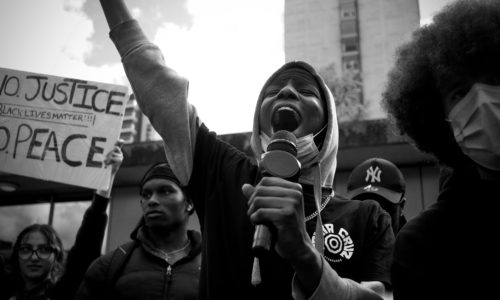

Alaska Operating Engineers Employers Training Trust
Policy against Harassment, Intimidation, or Discrimination
Meningitis
Know Your Risk
Learn About Vaccination
Information in this handout has been gathered from the Alaska Postsecondary Student Immunization Act (HB185), signed into law effective May 18, 2005. Additional information was gathered from the Alaska Department of Health and Social Services’ Division of Public Health and the Web site of the American College Health Association at http://www.acha.org/projects_programs/meningitis. The Alaska Commission on Postsecondary Education (ACPE) cannot provide medical information and is not responsible for any medical information provided to schools or to students. For questions specific to meningitis, immunization, and related diseases, please consult a qualified medical professional.
Did you know?
- Meningococcal disease is a contagious but largely preventable bacterial infection that most often leads to meningitis, an inflammation of the membranes surrounding the brain and spinal cord, or a condition called meningococcal septicemia, which is an infection of the blood.
- Meningococcal disease is caused by bacteria called Neisseria meningitidis that are spread person-to-person through the air (usually by sneezing or coughing), through direct contact with an infected person, such as oral contact with shared items like cigarettes or drinking glasses, or through intimate contact, such as kissing. This disease is not as contagious as things like the common cold or the flu, and it is not spread by casual contact or by simply breathing the air where a person with meningitis has been.
- Meningococcal disease is a serious illness that can lead to death within a few hours of onset; one out of ten cases is fatal, and in one out of seven survivors it can lead to severe and permanent disabilities, such as brain damage, hearing loss, seizures, or limb amputation.
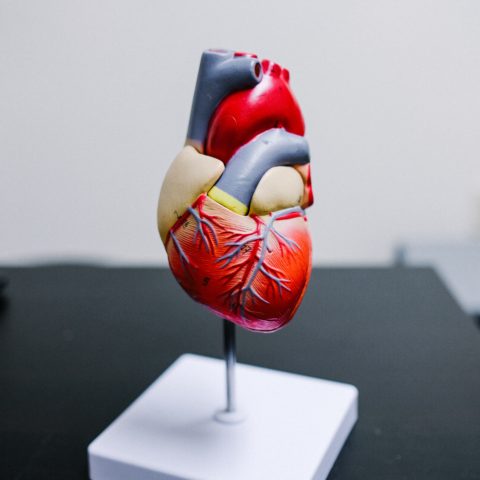
What are the symptoms of meningococcal disease?
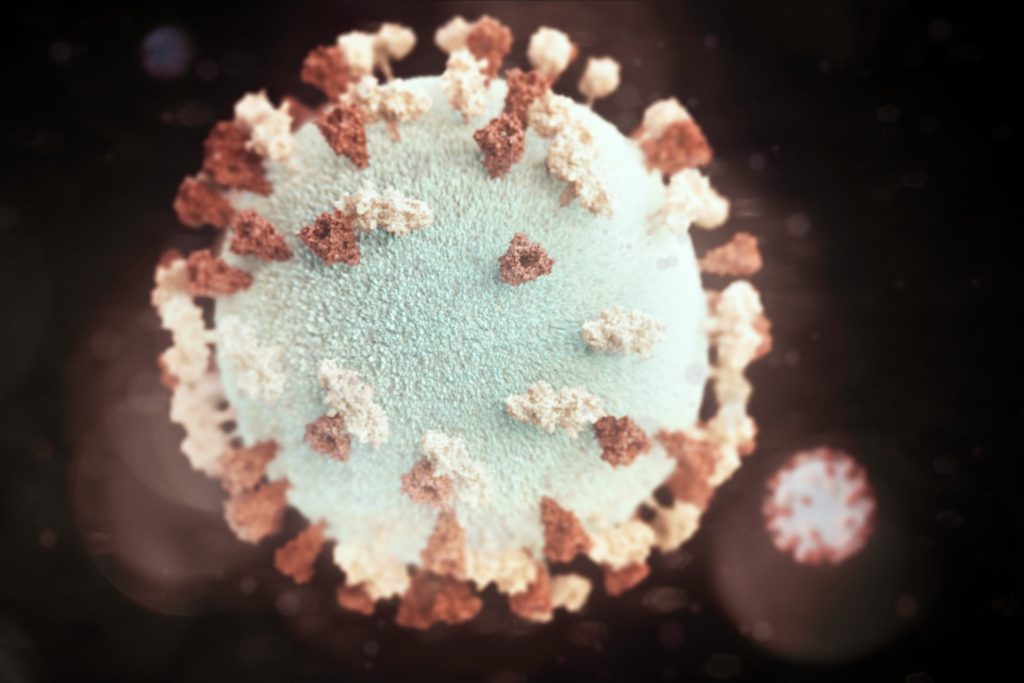
Who is at risk for meningococcal disease?
- Anyone can get meningococcal meningitis, but scientific evidence suggests that college freshmen living in campus housing are at moderately increased risk to get this disease when compared to the general college population. The reasons for this increased risk are still not known for certain, but factors may include such things as crowded living situations, bar patronage, active or passive smoking, irregular sleep patterns, and sharing personal items.
- Other risk groups include infants and young children, household contacts to a person with meningococcal disease, refugees from parts of the world with high rates of meningococcal disease, laboratory workers who work with this bacteria, and military recruits.

Are there vaccines against meningococcal disease?
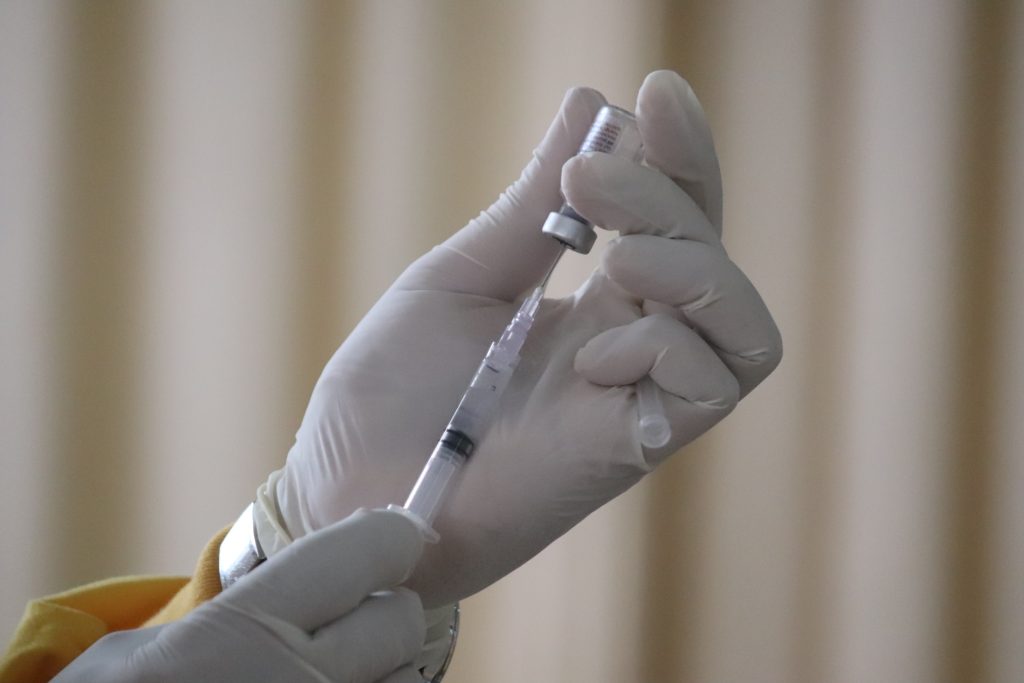
Yes, there are two safe and effective vaccines that protect against four strains of the bacteria that cause meningococcal disease – serogroups A, C, Y, and W135. Immunization against meningococcal disease will decrease the risk of contracting the illness from these meningococcal strains.
How can meningococcal disease be prevented?
- Many cases of meningococcal disease can be prevented. The Centers for Disease Control and Prevention and the American College Health Association recommend that all first-year students living in residence halls be vaccinated against meningococcal disease. All other college students under the age of 25 years who wish to reduce their risk for the disease may choose to be vaccinated.
- Vaccination is safe and effective. It protects against four of the five most common strains (or types) of bacteria that cause meningitis. Approximately 70 to 80 percent of cases in the college age group are caused by strains that are potentially vaccine-preventable. The most commonly reported adverse reactions among adolescents and adults in clinical studies were pain at the injection site, headache, and fatigue. These respond to simple measures (ibuprofen or acetaminophen) and resolve spontaneously within a few days
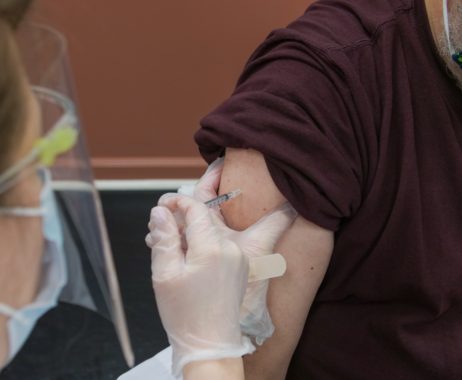
For More Information
To learn more about meningitis and immunization, visit the websites of the American College Health Association, www.acha.org/meningitis, and the Centers for Disease Control and Prevention, www.cdc.gov/ncidod/diseases/submenus/sub_meningitis.htm.
Photo/Video Consent and Release Form
Training Program:
Alaska Operating Engineers/Employers Training TrustFor and in consideration of the opportunity and privilege of appearing in or participating in one or more video recordings, sound tracks, films, photographs, written articles or recordings, I hereby consent to the use and editing thereof and release the Alaska Operating Engineers/Employers Training Trust and its employees and assignees from any and all claims resulting from such use, sales, editing, and release to newspapers and/or television stations/channels or newsletters.

ALASKA OPERATING ENGINEERS / EMPLOYERS TRAINING TRUST
TRAINING RULES AND REGULATIONS
The term “Trainee” shall mean any student, person, apprentice or journeyperson, who is registered for training. Trainees who do not comply with the rules and regulations may be suspended from training and/or removed from the Apprenticeship Program. Anyone removed from training for cause will be required to go before the Trust Administrator prior to being allowed to attend future training.
The following rules are to protect the health and safety of all persons, trainees, and staff; in addition to enhancing the learning environment and skill development.
The Alaska Operating Engineers / Employers Training Trust (AOEETT) are dedicated to providing a training environment free of alcohol and substance abuse. A trainee who has been observed by the staff and is suspected of being under the influence of a controlled substance and/or intoxicant will be immediately removed from the equipment or other training activity. In the event this behavior is observed of an apprentice while training they will be removed from the class and be subject to drug testing as described in the AOEETT drug testing policy.
Rules and Regulations
- Trainees shall not have weapons on their person while attending training offered by the AOEETT. “Weapon” is defined as but not limited to; firearms, ammunition, knives (exception is ordinary pocket knives, Leatherman, etc.).
- Trainees shall not commit or perpetrate act(s), which may endanger the health and safety of staff or trainees.
- Trainee shall not remove, displace, damage, destroy or alter any property, including, but not limited to equipment, safety devices, notices or warning signs. Anyone removing Trust property without proper authorization from the Trust Administrator will be subject to disciplinary action and the proper authorities will be contacted.
- Trainees are expected to attend all scheduled training. Tardiness and unexcused absences are unacceptable and will be dealt with on a case by case basis which may result in termination from the Apprenticeship Program. An absence is only considered excused with prior notification given to the Instructor and/or Training Director. In the event that it is an apprentice beyond the probationary period they will be suspended and may be required to appear before the Apprenticeship Disciplinary Committee. In the event that you are unable to attend training, for any reason other than an excused absence, and you are staying at the hotel, you will be responsible for the room/food charges for the days you are absent.
- Trainees are required to sign the attendance roster for each class. It is the trainee’s responsibilities to notify the dispatcher or apprentice coordinator of classes attended and provide them with a copy of any cards received.
- Trainees must be at the training location and prepared for class 15 minutes prior to the designated time. Classes begin promptly at the specified time. Lunch is scheduled for ½ hour unless training schedule requires altering or instructor designated.
- Trainee must notify his/her instructor and/or Training Director if they wish to leave the Training Center during training hours.
- Trainees must report all accidents/injuries to the Instructor and/or Training Director regardless of severity. Any near misses, hazardous releases, or unusual occurrences must also be reported to the Instructor and forwarded to the Training Director.
- All trainees under medical care must have an unconditional doctor’s medical release to perform the tasks required by the training course you are in. NO LIMITATIONS OR EXCEPTIONS ARE ALLOWED.
- Trainees must inform their instructor if they are taking prescription/over the counter medicine that may alter their ability to operate or work on equipment safely. They must also notify their instructor of any physical limitations.
- Trainees shall operate equipment only in designated areas, under the supervision of an instructor. Appropriate personal protective equipment must be worn at all times while exposed to potential hazards. Violations of this rule will be cause for disciplinary action up to and including suspension and/or termination from the training class.
- Body piercing paraphernalia is not to be worn while attending classes. It is recommended that all rings and chains be removed for training.
- Only one trainee shall be allowed on a piece of equipment while in operation unless a seat and seat belt are provided for additional occupants.
- Trainees shall not make any repairs or adjustments to equipment unless under the direction of an instructor or by Training Trust staff.
- Vehicles must be parked in designated areas only.
- Pets are not allowed on AOEETT property. In the event that you must be excused from class for violation of this policy it will be observed as an unexcused absence for that day.
- Private vehicles are not to be driven beyond the designated parking areas; if access to remote locations at the Training Center is required authorization must be prearranged at the office.
- The speed limit on Training Trust property is 15 MPH.
- All persons entering the Training Trust property must report to the front office.
- There is to be only minor emergency repairs of personal vehicles utilizing Training Trust Facilities. These repairs must be approved by the Training Director prior to repairs taking place.
- Fighting and disorderly conduct will not be tolerated. All occurrences will be reported to the Administrator and may result in disciplinary action up to and including termination.
- There will be no tolerance for verbal or physical conduct from any trainee that may be construed as harassing, disruptive, offensive or interferes with another’s training or which creates an intimidating, offensive or hostile environment.
- All cell phones are to be turned off during training. You will be able to check messages during breaks/lunch. In some circumstances exceptions may be made at the discretion of the instructor. In the event of an emergency you can be contacted at 907-746-3117.
- Appropriate clothing shall be worn while attending classes at the training center. Halter tops, exposed midriffs, strapless and/or low cut tops, exposed backs, spaghetti straps, see-through clothing, and tank shirts are prohibited. Undergarments are not to be visible or worn in an inappropriate manner. Clothing with inappropriate advertising or statements that are offensive or inflammatory (alcoholic beverage, sex, tobacco, drugs, gang, satanic, promoting violence, etc.) are prohibited. Pants shall be worn securely at the waist. Shirts must be worn at all times.
- In accordance with Alaska State law smoking is prohibited inside any Training Trust building. It is also prohibited in any Training Trust owned vehicle or equipment. Smoking is only allowed in designated areas outside. A cigarette disposal container has been provided for smokers, we ask that you please do not dispose of your cigarette butts on the ground. In addition everyone utilizing this receptacle is also responsible for the upkeep and maintenance of the unit. For those who use chewing tobacco we ask that you refrain from spitting anywhere on or near the paved areas.
Any trainee who violates any of the above stated rules may be subject to disciplinary action up to and including removal from the Training Center and in some instances subject to penalty from other authorities.
In the event that the Training Trust is providing your lodging please understand that the Training Trust Administrator or the Hotel can revoke this at any time.
It is the policy of the Training Trust that only members listed for a hotel room be in the room (no exceptions). In the event that you are found to have additional people in the room YOU will be responsible for any additional fees and disciplinary action may result.
If you are removed from the class you are attending, your room and meals will be cancelled immediately.
GENERAL INFORMATION
The Training Center is located at 5400 N. Cunningham Road in Palmer (Mile 3.5 Palmer Fishhook Road). The office hours are 8 a.m. to 5 p.m. Monday through Thursday and 8 a.m. to 4:30 p.m. on Friday. If you are delayed or unable to attend training please call (907) 746-3117. If there is no one available to take your call you will be forwarded to a messaging system.
All apprentices must attend a CPR/First Aid, NSTC, MSHA New Miner, OSHA and Forklift training classes. This is generally included as part of your regular schedule of classes. All apprentices must complete the 40 Hour Hazmat class before the 6,000 hours have been completed. If you have a current CPR/First Aid, NSTC, Hazmat, MSHA, OSHA or Forklift card please bring them with you.
DIRECTIONS TO THE TRAINING SITE
From the Parks Highway turn left onto the Palmer/Wasilla Highway. Proceed down Palmer/Wasilla Highway to Trunk Road, turn left on Trunk Road. Stay on Trunk Road until it T’s at Palmer Fishhook Road. Turn left on Palmer Fishhook Road and proceed north to mile 3.5. Turn left on Cunningham Road; follow Cunningham Road to the Training Center.
If you have a problem locating the Training Site please call (907) 746-3117.
NECESSARY ITEMS FOR YOUR STAY
- Work clothes, overalls, rain gear, work gloves, etc.
- Work boots (tennis shoes are not considered work boots).
- Necessary personal items including toiletries.
In the event the class you are attending requires specialty items you will be notified when registered for the class.
Travel Policy:
- Any member requesting reimbursement must be a Local 302 member in good standing as defined in the Union Bylaws and Constitution:
- Provide proof via dues card and registration slip for Local 302 in Alaska.
- Must be currently working out of the Local 302 in Alaska or registered for work on at least one Local 302 Out-of-Work List in Alaska.
- Worked and paid into Alaska Training at least 200 hours in the last 2 calendar years.
- Members must successfully complete the training class. (Walk-in testing does not qualify as a training class.) Dependent on the type of class taken, successful completion is defined as:
- Satisfying the minimum attendance requirements and achieving an average score of 80% or higher on class homework/tests. (Example: If attending a 40 Hour Hazmat class, it is required you attend all 40 hours of class to successfully complete class
- Obtaining the certification/qualification intended for the class. The Training Trust will not reimburse for certification fees, transportation, lodging or meals if you fail to obtain the certification/qualification on your first attempt or any attempts thereafter.
- All reimbursements are ONLY for qualified members registered for training. Expenses incurred by other parties DO NOT qualify for reimbursement.
- Reimbursement requests and supporting documentation must be turned in within 2 weeks of the completion of training. Requests received after that time may result in immediate denial of reimbursement. No expense will be reimbursed without a valid receipt and a completed Travel Reimbursement Request Form. These forms are available at any of our Training Trust offices. Receipts must show an itemized list of all items and proof of payment. Please separate your purchases so only items being reimbursed are on the submitted receipt.
- STEP Grant Applications must be completed if you are seeking reimbursement. You must complete the entire application. We will also need: a copy of a recent paystub (within the last 5 years – showing you’ve paid into unemployment insurance), valid Alaska driver’s license, and view your social security card for verification.
Non-Standard Training (training not offered or conducted by AOEETT)
- Members must receive prior written approval from the Administrator for non-standard training requests utilizing the Non-Standard Training Request Form. Upon the Administrator’s approval, the member will be contacted and advised to proceed with travel arrangements for the class and submission of a STEP Grant Application.
- If you are unable to attend training in your local area and wish to train at another location, you must obtain written approval from the Administrator if you will be requesting reimbursement. Failure to obtain non-standard training approval prior to training will result in the immediate denial of reimbursement.
Hotel
- Members living outside of the 60-mile one-way radius from the training site location may request lodging reimbursement. The amount of reimbursement for lodging is 50%, at a maximum of $50.00 a day, (5 class days / 1 travel day). In the event you make reservations and do not attend training, the AOEETT will NOT reimburse for any cancellation/no show fees. We offer negotiated rates with local area hotels, please inquire during the registration process. You must submit a copy of your detailed lodging receipt with your total room charges and a completed Travel Reimbursement Request Form within 2 weeks of the completion of class.
Travel
- As of July 1, 2019, The AOEETT will reimburse mileage for members residing outside of a 60-mile radius from the training center or 50% of instate airfare / ferry up to $300.00 round trip. Members traveling for training will be required to make their own travel arrangements and pay for all associated expenses. You must submit a copy of all applicable detailed travel receipts and a completed Travel Reimbursement Request Form within 2 weeks of the completion of class.
Meals
- Members living outside of the 60-mile one-way radius from the training site location may request meal reimbursement up to $20.00 per day, ($30.00 weekends). Meal reimbursement is available for the scheduled class days and the following weekend if class is longer than 40 hours. Travel days are excluded. You must submit a copy of all detailed meal receipts with a completed Travel Reimbursement Request Form within 2 weeks of the completion of class. Receipts must show an itemized list of all items ordered and proof of payment. AOEETT does not reimburse for alcohol. Tipping your server is at your discretion and is not a reimbursable expense.
General - The Training Trust reserves the right to refuse payment or reimbursement for any charges that are determined to be abusive, unnecessary, or unreasonable.
The following list of items are NOT covered for reimbursement. This is not an all-encompassing list and is subject to change at the Training Trusts discretion. Anyone found violating or falsifying information in these situations will be ineligible for any future reimbursement.
- Room Service/Food delivery fee’s
- Phone Calls/Internet Service
- Rental Vehicles/Taxis
- Parking
- Videos
- Laundry
- Alcohol/Liquor
- Out of state expenses, (toll, etc.)
- Unreasonable expenses
Additional Information
The Alaska Operating Engineers/Employers Training Trust staff is not responsible for the submission of the stated required documents; it is the responsibility of the person requesting reimbursement. AOEETT staff may provide information regarding the submission of documents, however, they will not be held responsible for an individual’s failure to follow the above guidelines.
By typing my name below I acknowledge that I have read ALL of the above and have been given a copy (you may print this screen) of this Travel Reimbursement Policy for my review and understand that it is my responsibility to read and adhere to it. I further acknowledge that my failure to follow the above guidelines will result in the immediate denial of reimbursement.
